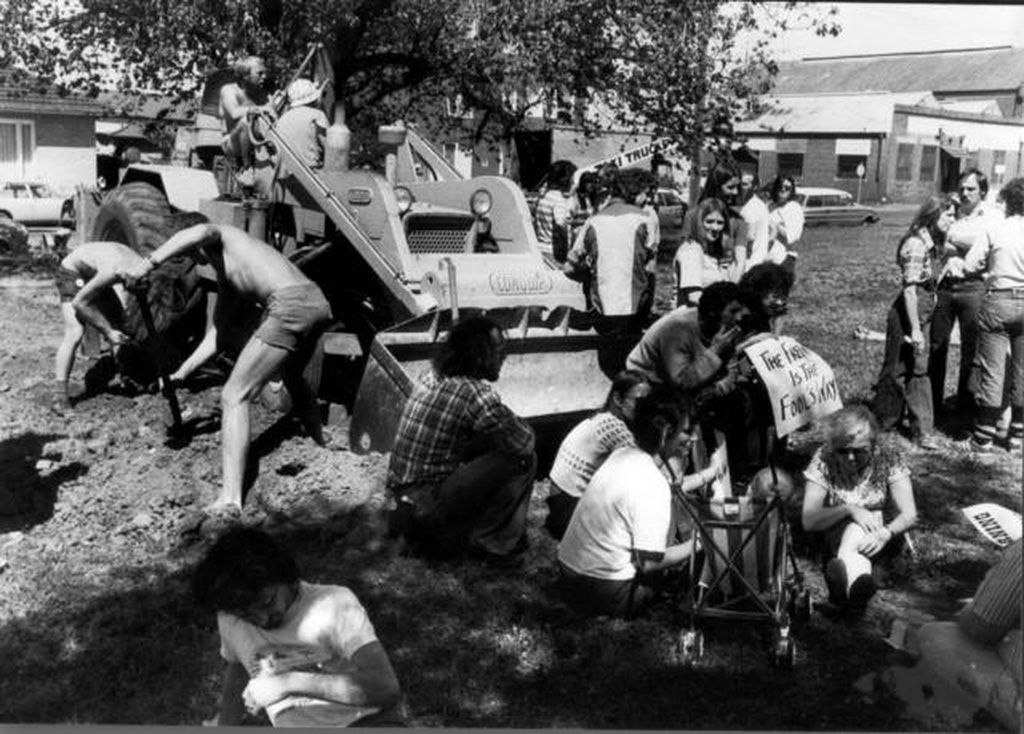
When the Bolte government announced their 1969 Melbourne Transportation Plan to drastically expand Melbourne’s freeway and public transport network, some of the planned routes through existing urban areas drew significant protests. This was particularly the case for the radial road known as F19, which includes part of what is now known as the Eastern Freeway. This road was originally planned to extend beyond Hoddle Street through the Collingwood and Fitzroy area, and to connect to the Tullamarine Freeway in Melbourne’s west. This would involve substantial compulsory acquisitions and demolitions of homes and businesses, and drastically changed access to the local areas. A number of significant local groups such as the Carlton Association and the Committee for Urban Action helped mobilise local protest against these plans, with further groups such as the the United Freeway Action group forming to raise awareness and block the development. Due to this local pressure, in October 1971, the extension was abruptly cancelled; The Age reported on this as ‘a major defeat for the M.M.B.W.’ and this event has been widely interpreted as an important part of the backlash against central government infrastructure planning during the 1970s which led it to fall from favour. The idea of a freeway connection running through this part of Melbourne, however, persisted, and was reinvigorated by a Liberal state government in 2013 as part of a planned freeway network known as East-West Link. Unlike F19, this was to be a toll road heavily funded by the private sector. While the demographic of the Collingwood area had drastically changed since 1971, there was a similarly high level of community opposition to the planned freeway route, with large-scale protests organised to prevent planned works from taking place. Combined with concerns about the way in which the public-private partnership was negotiated, this led to the cancellation of the project in 2014.
by laurenpiko on March 2, 2019Please login to comment on this item